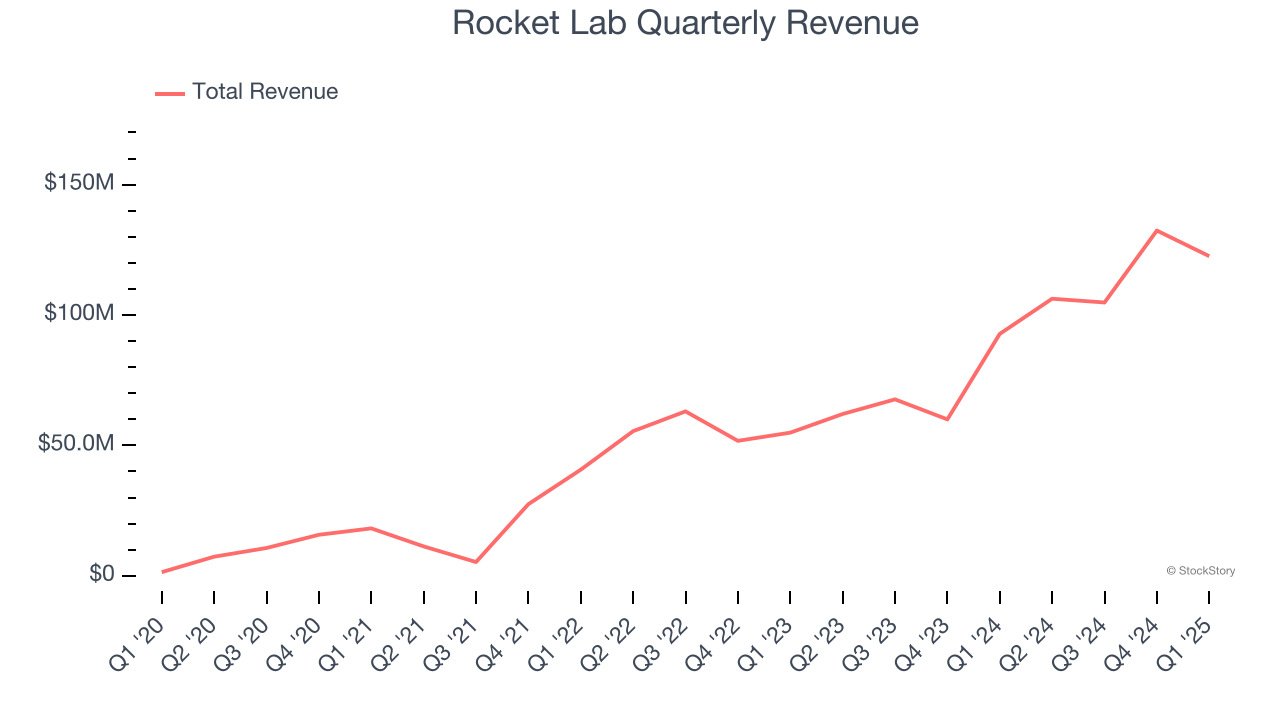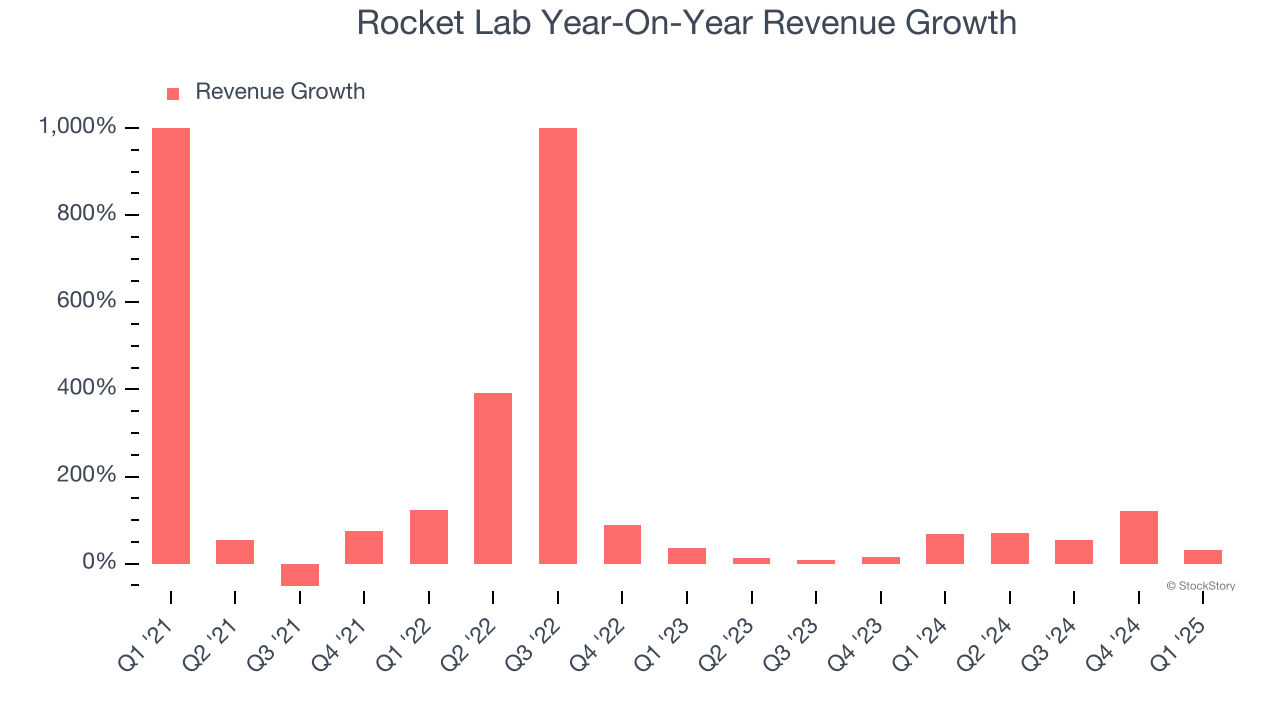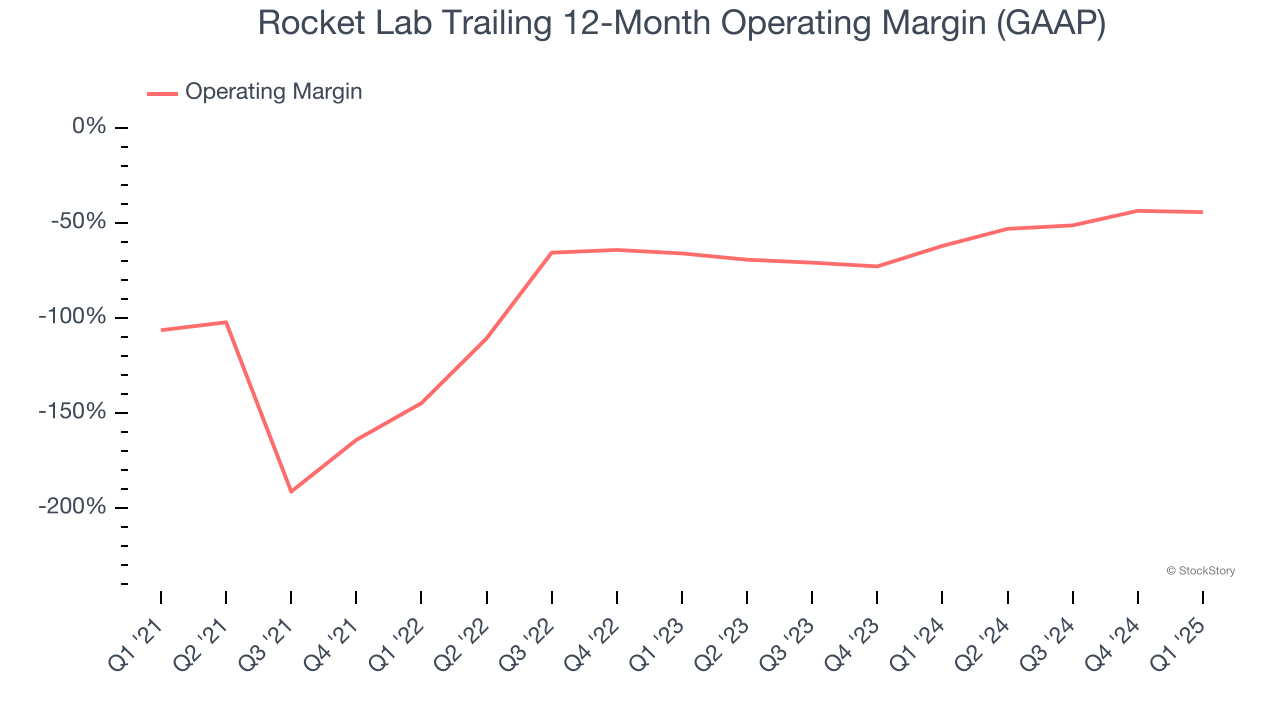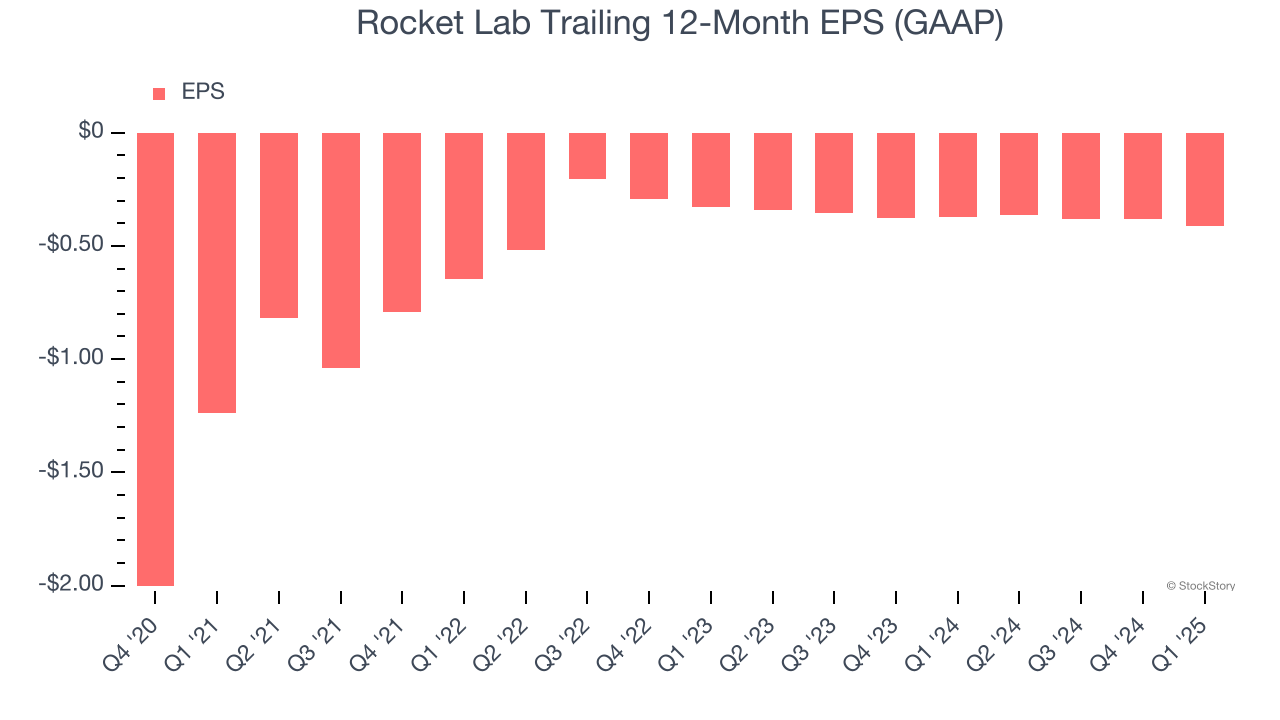
Aerospace and defense company Rocket Lab (NASDAQ:RKLB) announced better-than-expected revenue in Q1 CY2025, with sales up 32.1% year on year to $122.6 million. On the other hand, next quarter’s revenue guidance of $135 million was less impressive, coming in 1.7% below analysts’ estimates. Its GAAP loss of $0.12 per share was in line with analysts’ consensus estimates.
Is now the time to buy Rocket Lab? Find out by accessing our full research report, it’s free.
Rocket Lab (RKLB) Q1 CY2025 Highlights:
- Revenue: $122.6 million vs analyst estimates of $121.6 million (32.1% year-on-year growth, 0.8% beat)
- EPS (GAAP): -$0.12 vs analyst estimates of -$0.12 (in line)
- Adjusted EBITDA: -$29.96 million vs analyst estimates of -$33.63 million (-24.4% margin, 10.9% beat)
- Revenue Guidance for Q2 CY2025 is $135 million at the midpoint, below analyst estimates of $137.3 million
- EBITDA guidance for Q2 CY2025 is $29 million at the midpoint, above analyst estimates of -$20.45 million
- Operating Margin: -48.3%, down from -46.4% in the same quarter last year
- Free Cash Flow was -$82.9 million compared to -$21.77 million in the same quarter last year
- Market Capitalization: $10.11 billion
Company Overview
Becoming the first private company in the Southern Hemisphere to reach space, Rocket Lab (NASDAQ:RKLB) offers rockets designed for launching small satellites.
Sales Growth
A company’s long-term performance is an indicator of its overall quality. Any business can put up a good quarter or two, but many enduring ones grow for years. Over the last four years, Rocket Lab grew its sales at an incredible 73.1% compounded annual growth rate. Its growth beat the average industrials company and shows its offerings resonate with customers.

We at StockStory place the most emphasis on long-term growth, but within industrials, a stretched historical view may miss cycles, industry trends, or a company capitalizing on catalysts such as a new contract win or a successful product line. Rocket Lab’s annualized revenue growth of 43.9% over the last two years is below its four-year trend, but we still think the results suggest healthy demand. 
This quarter, Rocket Lab reported wonderful year-on-year revenue growth of 32.1%, and its $122.6 million of revenue exceeded Wall Street’s estimates by 0.8%. Company management is currently guiding for a 27.1% year-on-year increase in sales next quarter.
Looking further ahead, sell-side analysts expect revenue to grow 37.7% over the next 12 months, a deceleration versus the last two years. Despite the slowdown, this projection is admirable and suggests the market sees success for its products and services.
Here at StockStory, we certainly understand the potential of thematic investing. Diverse winners from Microsoft (MSFT) to Alphabet (GOOG), Coca-Cola (KO) to Monster Beverage (MNST) could all have been identified as promising growth stories with a megatrend driving the growth. So, in that spirit, we’ve identified a relatively under-the-radar profitable growth stock benefiting from the rise of AI, available to you FREE via this link.
Operating Margin
Rocket Lab’s high expenses have contributed to an average operating margin of negative 63.7% over the last five years. Unprofitable industrials companies require extra attention because they could get caught swimming naked when the tide goes out. It’s hard to trust that the business can endure a full cycle.
On the plus side, Rocket Lab’s operating margin rose by 62.1 percentage points over the last five years, as its sales growth gave it operating leverage. Still, it will take much more for the company to reach long-term profitability.

In Q1, Rocket Lab generated a negative 48.3% operating margin. The company's consistent lack of profits raise a flag.
Earnings Per Share
Revenue trends explain a company’s historical growth, but the long-term change in earnings per share (EPS) points to the profitability of that growth – for example, a company could inflate its sales through excessive spending on advertising and promotions.
Although Rocket Lab’s full-year earnings are still negative, it reduced its losses and improved its EPS by 24% annually over the last four years. The next few quarters will be critical for assessing its long-term profitability. We hope to see an inflection point soon.

Like with revenue, we analyze EPS over a more recent period because it can provide insight into an emerging theme or development for the business.
For Rocket Lab, its two-year annual EPS declines of 12.1% mark a reversal from its (seemingly) healthy four-year trend. These shorter-term results weren’t ideal, but given it was successful in other measures of financial health, we’re hopeful Rocket Lab can return to earnings growth in the future.
In Q1, Rocket Lab reported EPS at negative $0.12, down from negative $0.09 in the same quarter last year. This print was close to analysts’ estimates. Over the next 12 months, Wall Street is optimistic. Analysts forecast Rocket Lab’s full-year EPS of negative $0.41 will reach break even.
Key Takeaways from Rocket Lab’s Q1 Results
We were impressed by Rocket Lab’s optimistic EBITDA guidance for next quarter, which blew past analysts’ expectations. We were also excited its revenue and EBITDA outperformed Wall Street’s estimates by a wide margin. On the other hand, its quarterly revenue guidance missed. Overall, this print had some key positives, but the market seemed to be hoping for more. The stock traded down 3.5% to $22.33 immediately after reporting.
So do we think Rocket Lab is an attractive buy at the current price? We think that the latest quarter is only one piece of the longer-term business quality puzzle. Quality, when combined with valuation, can help determine if the stock is a buy. We cover that in our actionable full research report which you can read here, it’s free.
